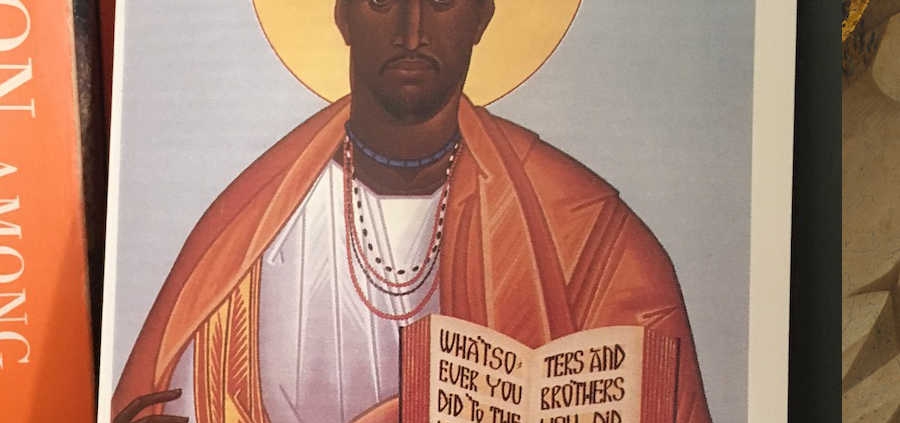Racism: A Challenge to the Church By Dr. Anneliese Sinnott, O.P.
This piece comes courtesy of the Association for the Rights of Catholics in the Church (ARCC), and was originally published on the organization’s website in November 2019—Ed.
The Association for the Rights of Catholics in the Church (ARCC) was founded a number of years ago to address “problems” in the church stemming from violations of Canon 208: There exists among all the Christian faithful, in virtue of their rebirth in Christ, a true equality with regard to dignity and activity; all cooperate in the building up of the body of Christ in accord with each one’s own condition and function.
ARCC states its mission as: The mission of ARCC is to bring about substantive structural change within the Catholic Church by seeking to institutionalize a collegial understanding of church where decision making is shared and accountability is realized among Catholics of every kind and condition. In all instances these rights and responsibilities apply to all Catholics, regardless of race, age, nationality, sex, sexual orientation, state-of-life, social or economic position.
ARCC has worked very hard over the years to address issues of “age, nationality, sex, sexual orientation, state-of-life, social or economic position.” It is time, now, to spend some energy on addressing the issue of race!
Almost 40 years ago in 1979, some of the US bishops issued a statement entitled “Brothers and Sisters to Us.” In that document we find these words:
Racism is an evil which endures in our society and in our Church. Despite apparent advances and even significant changes in the last two decades, the reality of racism remains. In large part it is only external appearances which have changed. . . . [W]e wish to call attention to the persistent presence of racism and in particular to the relationship between racial and economic justice. Racism and economic oppression are distinct but interrelated forces which dehumanize our society.
The impact of this letter on most US Catholics was minimal. And so, 17 years ago, Chicago’s Cardinal George raised the issues again, focusing on “spatial racism.” His letter, entitled “Dwell in My Love,” referenced John 15:7 and intentionally drew a line between how we “dwell” in God’s love and the location of our dwellings here on earth. In this pastoral letter he made an important clarification:
Spatial racism refers to patterns of metropolitan development in which some affluent whites create racially and economically segregated suburbs or gentrified areas of cities, leaving the poor—mainly African Americans, Hispanics and some newly arrived immigrants—isolated in deteriorating areas of the cities and older suburbs.
Cardinal George went on to say:
These disparities undermine the regional economy and the moral basis of the metropolitan area. Spatial racism creates a visible chasm between the rich and the poor, and between white people and people of color. It marks a society that contradicts both the teachings of the Church and our declared national value of equality of opportunity.
It seemed obvious to Cardinal George that the spatial racism of our society is creating a similar pattern in the church. Geographically based parishes reflect the racial and cultural segregation patterns of neighborhoods and towns.
In 2015, one of our few African American bishops, Bishop Edward Braxton, initiated a process in his diocese of Belleville, Illinois, for all parishes to spend time on this important issue. In his pastoral letter “The Racial Divide in the United States: A Reflection for the World Day of Peace,” he said:
All are redeemed sinners transformed by Christ as members of His “mystical Body” with equal dignity before God. Is it asking too much for a nation that proclaims itself to be “one from many” to affirm that, in truth, there are no majority/minority groups in this country because we really are one? We are simply Americans, proud of our amazingly diverse backgrounds, with every right to expect, even demand, to be treated with equal dignity by law enforcement, by the courts, in the public square and in our churches.
The challenge to do something about racism in the Catholic Church was continued in January 2016 by the Department of Justice, Peace, and Human Development of the US Catholic Bishops, which issued its own statement entitled “Racism: Confronting the Poison in Our Common Home.” This document states:
Recent events in communities across the country, academic research and reports, and the caustic rhetoric that marks conversations about refugees and migrants, all provide ample evidence that there is still much work to do. As Christians, we are called to constantly examine our own hearts and consciences for how we might contribute to or break down racial divisions, intolerance, and discrimination. The increasing need for healing, that comes from an [sic] fuller understanding and acknowledgement of the lived reality of people and communities of color, cannot be understated. Lost lives need to be mourned; traumatized families and broken communities need to be healed.
Is it not time for all Catholics, but especially those of us who champion the “rights of Catholics in the Church,” to call attention to this “violation of rights”? What if each of us raised our voices to demand changes in our diocesan structures, our parish locations and boundaries, our seminary requirements? What if each parish took on the task of “dismantling racism” in its members and its neighborhoods? There is much work to be done to raise the “rights” of all Catholics to both “belong” and to “include”! Some of our bishops are leading the way. Perhaps it is time for us to join them! This, I believe, is a new challenge for ARCC and all Catholics of good will!
Dr. Anneliese Sinnott, O.P., is a retired professor of Systematic Theology at Ecumenical Theological Seminary, member of the Adrian Dominican Sisters, and Chair of Board of Dominican Center: Spirituality for Mission. She is a member of the ARCC board of directors.





Leave a Reply
Want to join the discussion?Feel free to contribute!